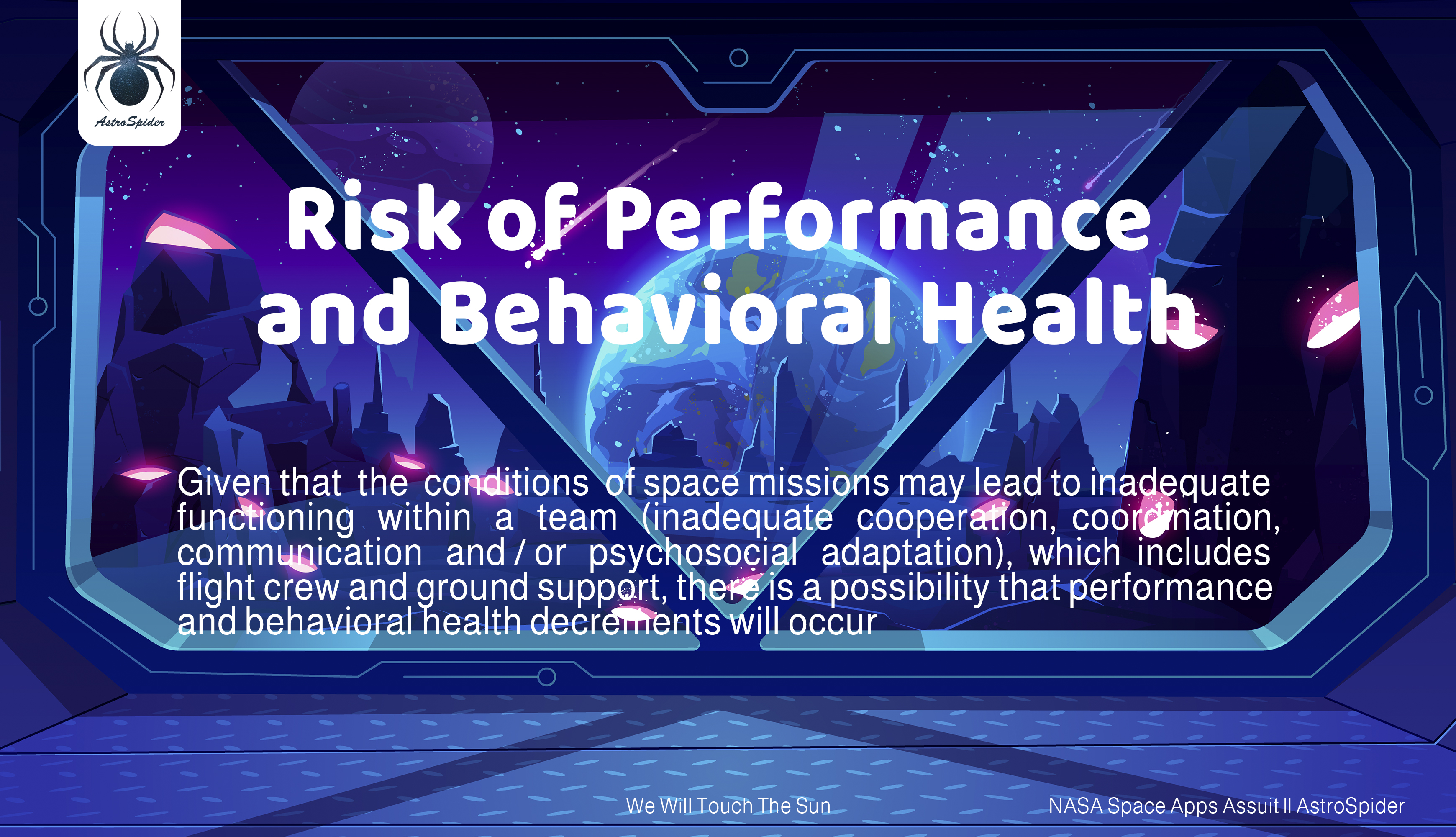
Risk of Performance and Behavioral Health
The formation of a team on the ground is always one of the most important factors for the success of the mission. The team must be compatible and harmonious with each other, able to coordinate and communicate among themselves, as all of this will have an impact on the performance of the crew and their access to the specific results of their mission. In comparison with space, the space flight team faces Same challenge but different circumstances as there is evidence of occasional conflict within pre-flight crews and during flight, within and across partner subgroups of the International Space Station (ISS). ISS crews have reported concerns about the crew's willingness to engage in effective teamwork during informal events.
In informal events identified as requiring "exceptional" teamwork, crews responded incorrectly. There is also evidence of significant effects on individual and group performance, stress and cohesion caused by communication delays, inefficient coordination between crew and the task control center, occasional deficiencies in team readiness during preflight and during flight due to switching between individual and group activities, and diminished group skills. and artistic. Selection successfully incorporated individual-level assessments of team skills and capabilities, but crew composition is not data dependent. Also, team training and performance are not systematically monitored or evaluated.
Currently, there are no standards and metrics for objective methods (reliable and sensitive) to monitor and measure team health and performance to measure team function and wellness for ground teams or space flight crew members. The goal is to standardize to provide the ability to objectively diagnose nominal events.
Some studies exist on 'group formation' or grouping project/mission teams into existing or larger work groups or social groups. We don't know which of these traditional predictive combinations of psychological measures will most efficiently and accurately predict which individuals are more or less likely to succeed in terms of team health and performance for long spaceflights. An astronaut's job is unique and difficult to compare with other jobs for which evidence is available, and the criteria for successful astronaut performance are much broader, higher, and longer than those for typical jobs. We know that some psychological factors (such as social support) predict team health and performance in some working conditions but not in others.
One of the main countermeasures currently available to ISS missions is: Social support which can include health, psychological and technical systems such as communication media or tools. Teamwork, which is the collaboration, communication and coordination of individuals, affects both the health and performance of the team. It is known from ground research that selection, training, and social support systems have the greatest influence on teamwork outcomes. In addition, the effects of reducing crew autonomy on the return trip are unknown. A more complete understanding of the effects of changing levels of autonomy on team performance, for both ground and flight crews, is needed to properly characterize the risks to which the team is exposed. The absence of a ground-based social support system for long-duration (<6; 6-12; >12 months) exploration missions beyond low Earth orbit is not known.